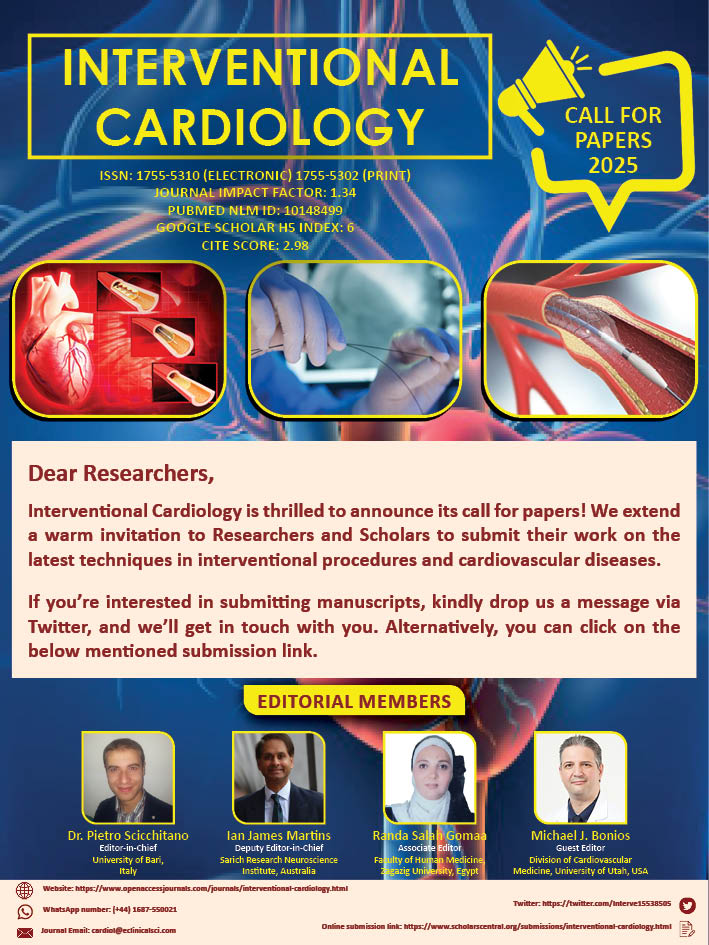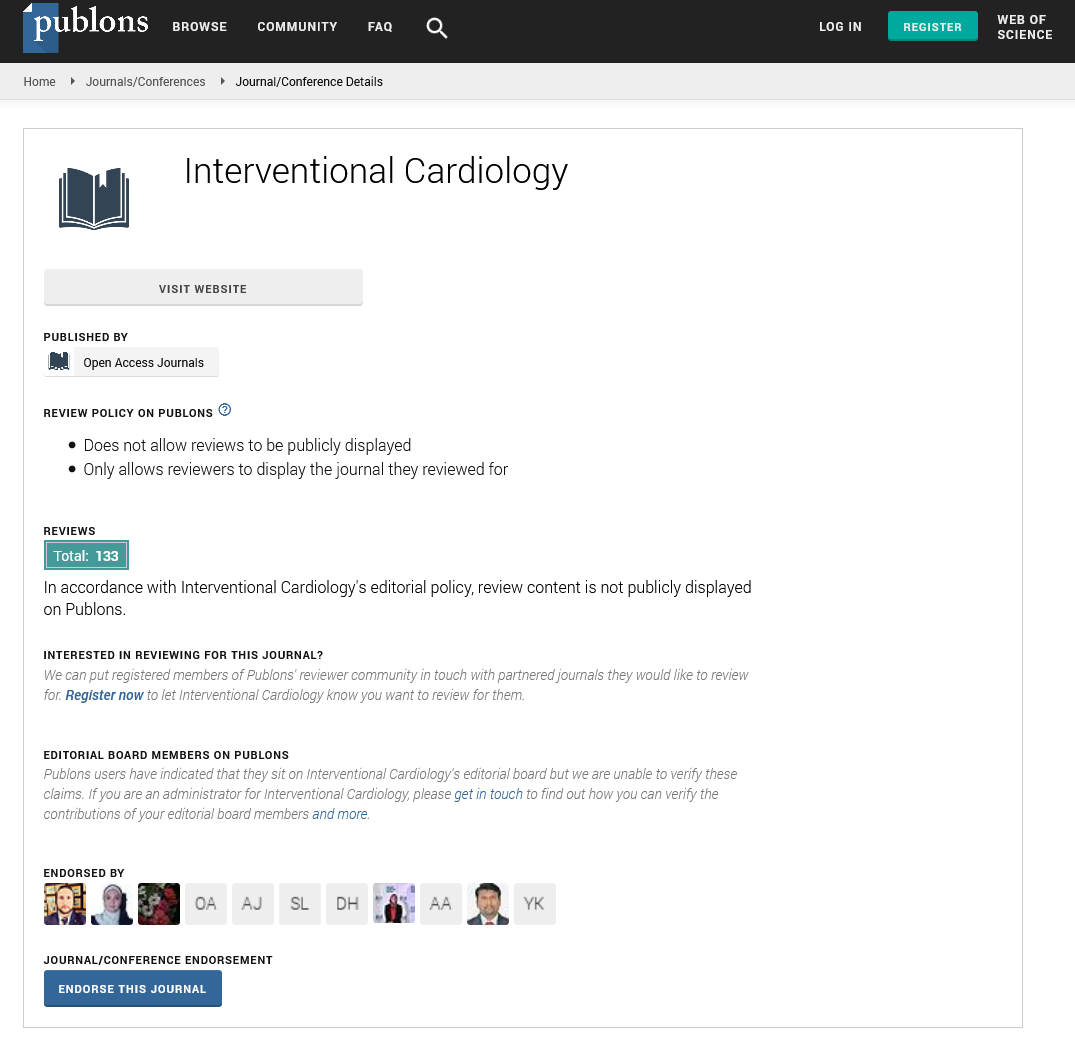Conference Proceeding - Interventional Cardiology (2009) Volume 1, Issue 1
8th International Congress on Complications During Coronary Interventions: Management and Prevention
- Corresponding Author:
- Didier Locca
Centre Hospitalier Universitaire Vaudois
Cardiology Unit, Lausanne, Switzerland
Tel: +41 2131 40010
Fax: +41 2131 40013
E-mail: didier.locca@chuv.ch
Abstract
The 8th International Congress on Complications During Coronary Interventions: Management and Prevention, was held at the Centre Hospitalier Universitaire Vaudois (CHUV), Lausanne, Switzerland, 17–19 June, 2009. This successful meeting was organized by the team of the Interventional Cardiology Unit at Lausanne University Hospital, Switzerland. This conference was a great success with more than 350 attendees from 31 countries with a range of backgrounds, including consultants and trainees in interventional cardiology. When complications occur we have to analyze why the complication has taken place in order to provide a means to understand the chain of events. This is important not only to satisfactorily deal with the complication at the time, but also to design the correct interventional strategy in the future. It is therefore an important step for interventional cardiologists to be able to accept complications as part of a learning process. Key to this is understanding how to use the new technologies, choosing the correct interventional strategy and to integrate these into daily practice. This congress goes a long way to facilitating this process. The uniqueness of the meeting is that it allows the attendees to review these complications cases with world-known key opinion leaders who involve themselves in the case discussion. In particular, tips and tricks are discussed in the general assembly but also informally during the breaks. Rather than seeing these experts on a far away podium at the large international meetings, the Lausanne course takes place at the human level.
All lectures were given by recognized national and international eminent experts. Professors Eric Eeckhout, Pierre Vogt (CHUV, Lausanne, Switzerland) and Prof Amir Lerman (Mayo Clinic Rochester, MN, USA) welcomed the attendees to the meeting.
The highlight came from Professor Patrick Serruys who opened the conference with a excellent overview of the evolution in interventional cardiology through the ages, documenting his illustrious career. This was followed by a complications cases presentation session chaired by Francois Schielle (CHU, Besancon, France), Stephan Windecker (InselSpital. Bern, Switzerland), Morton Kern (University of California, Irvine, CA, USA), Amir Lerman (Mayo Clinic, MN, USA) and Alexander Doganov (National Heart Hospital, Sophia, Bulgaria). Next, was an interesting review by Professor Thomas Luescher, Editor of the European Heart Journal, giving his expert view on publishing in the field of cardiovascular medicine in the context of research in interventional cardiology.
The technicity of percutaneous coronary intervention (PCI) in 2009 was also covered in a series of innovative spot lectures on hot topics including left main PCI, bifurcation PCI, interventions for structural heart disease and imaging-guided interventions. These topics were covered by recognized experts in their respective fields such as Jean Fajadet (Clinique Pasteur, Toulouse, France) and Goran Stankovic (Institute for Cardiovascular Diseases, Belgrade, Serbia).
A constructive debate on functional lesion assessment to guide intervention took place, highlighting the importance and the accuracy of fractional flow reserve measurement. Bernard de Bruyne, Bernhard Meier, William Wijns and Amir Lerman chaired this session bringing their experience to the audience. It is clear that imaging modalities complement the newer emerging technologies such as fractional flow reserve.
Finally, the guest lectures were given by pioneers in interventional cardiology, highlighting the history of PCI and offering a beacon for future generations. Advanced cardiac interventions have clearly arrived and the knowledge on how to avoid complications and deal with them when they occur is a crucial part of the interventional cardiologist’s skill. The Lausanne experience will no doubt continue to be a vital point of reference for established and emerging interventional cardiologists.

